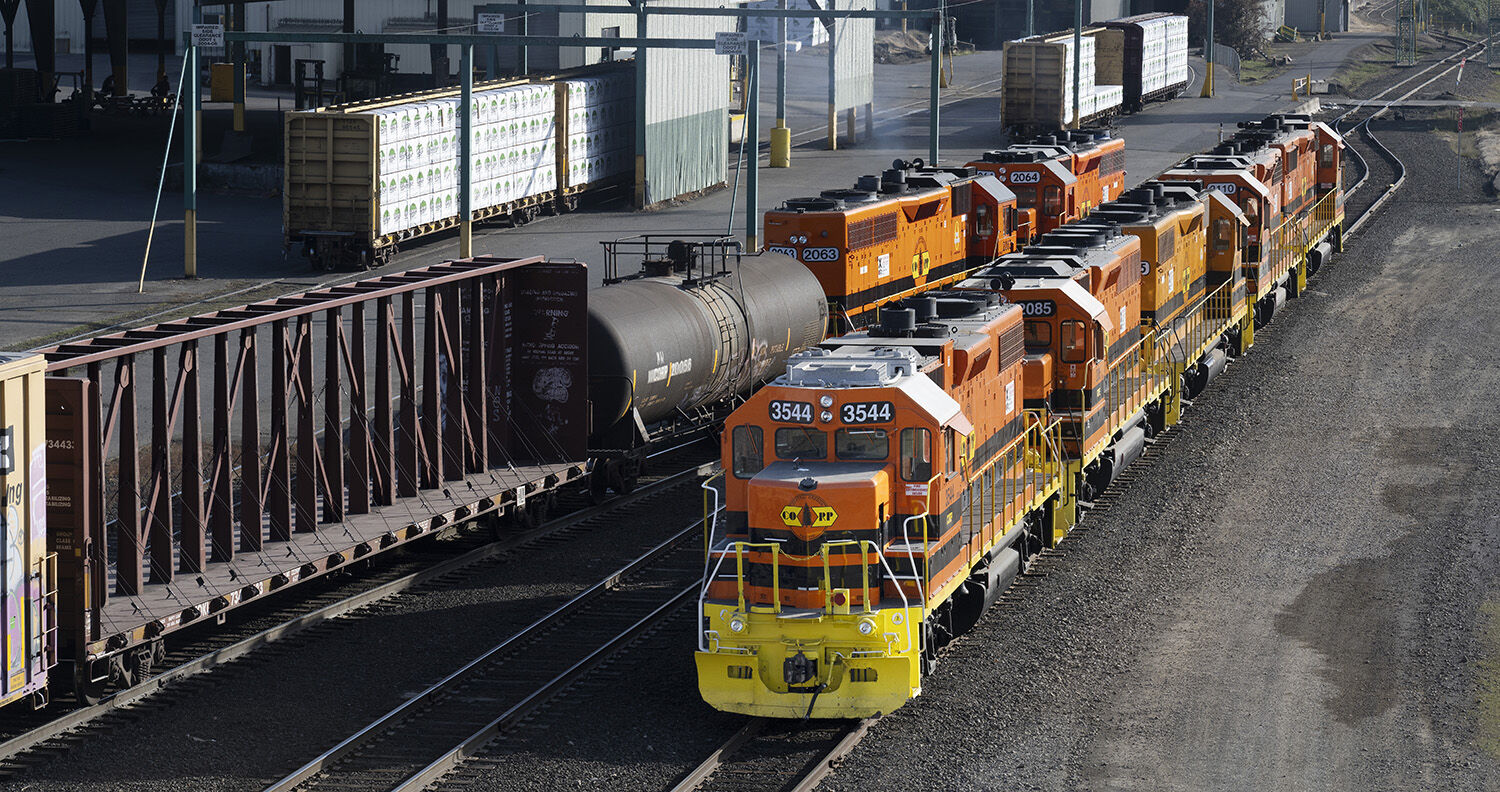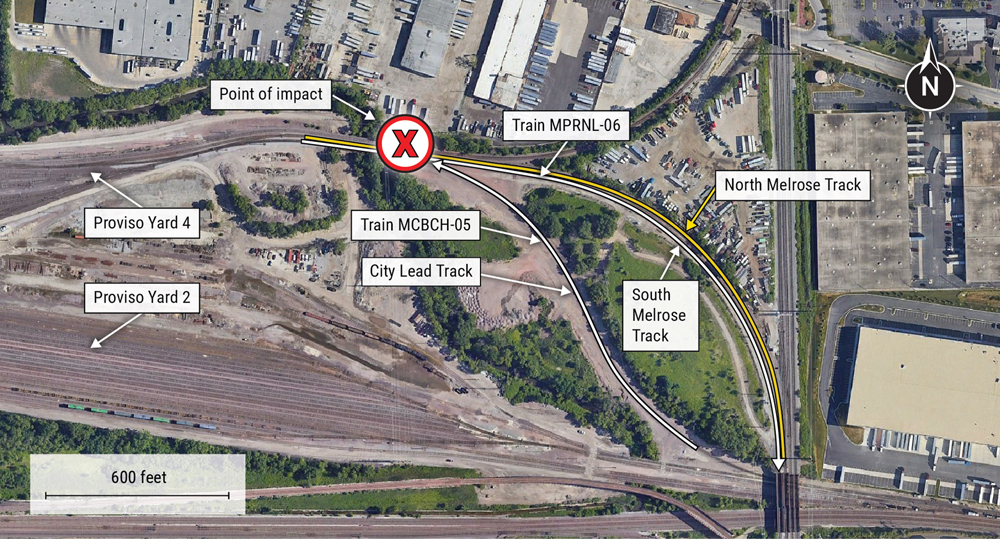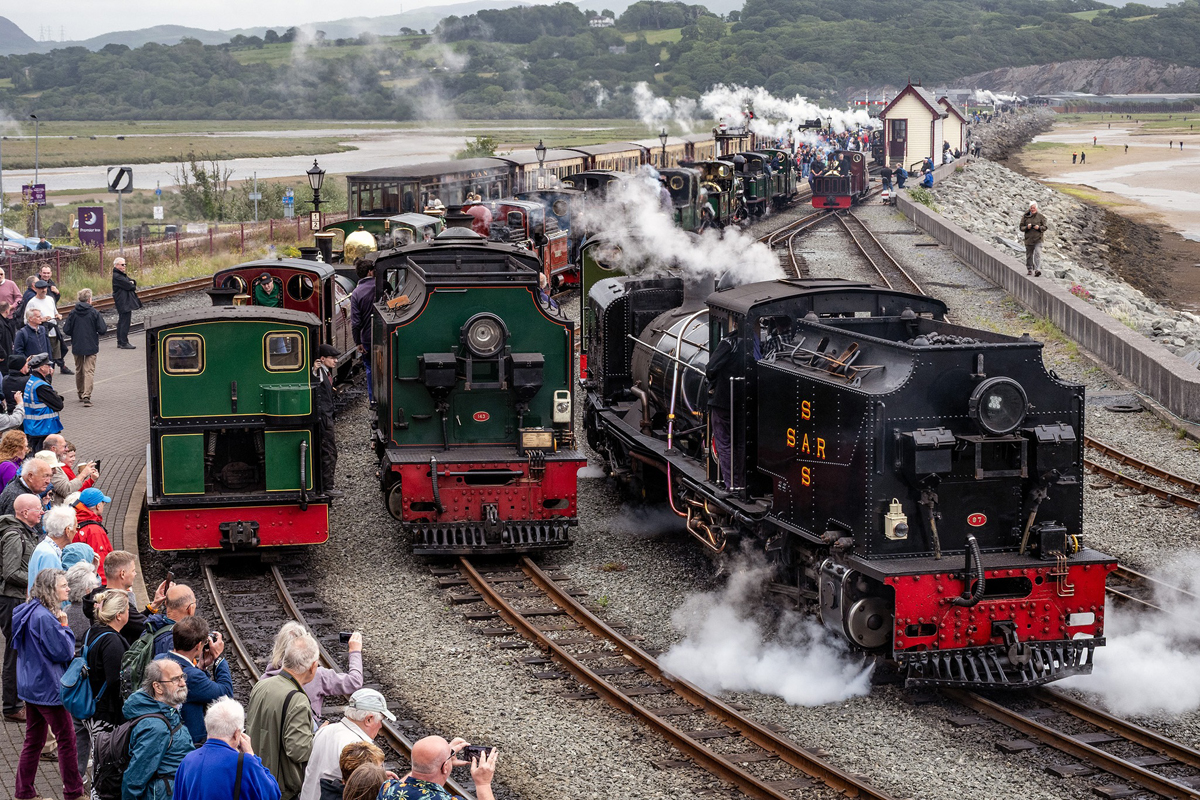
Genesee & Wyoming short line Central Oregon & Pacific Railroad will take over local service from Union Pacific’s Eugene Yard in Oregon, in a move the railroads said will improve service for local customers.
The change allows UP to reduce the number of times a railcar is handled and create greater efficiencies, while providing more flexibility and agility for both railroads to meet current customer needs and anticipated growth, the railroads said today.
“G&W has a proven track record in operational flexibility and providing excellent customer service,” Union Pacific Executive Vice President of Operations Eric Gehringer said in a statement. “Those strengths, combined with Union Pacific’s unmatched franchise and access to critical markets nationwide, position us to provide customers with the service we sold them and grow together.”
The 306-mile Central Oregon & Pacific interchanges with UP in Eugene.
“Union Pacific can count on CORP to operate their Eugene, Ore., yard safely and efficiently,” G&W CEO Michael Miller said in a statement. “In partnership with Union Pacific, our team is ready to deliver the customer-centric first- and last-mile rail service that customers have come to rely on from G&W railroads so that we can grow together.”
The deal is reminiscent of one between Canadian National and Watco in Louisiana. In 2021, CN handed off local switching at a nine-plant petrochemical complex to the new Watco short line Dutchtown Southern. Thanks to Dutchtown Southern providing service seven days per week — up from five — and offering customers multiple switches per day, traffic grew 47% in the 1.76-mile short line’s first year of operation.
Union Pacific and G&W say they are working with customers to ensure a smooth transition once the plan takes effect following approval from the Surface Transportation Board. Their regulatory paperwork was filed with the STB today but has yet to appear on the board’s website.
Union Pacific says it has been in contact with employees impacted by the change, including providing information about continued employment opportunities at UP, CORP, or other G&W railroads.
Union Pacific road train crews will continue to work out of Eugene Yard.














When the DOT, FRA and STB created rules that mandated Class One’s accounting for unhappy customers or face sanctions last year, I predicted that something like this would happen to (A) insulate the Class 1 and (B) put the service in hands of smaller, more flexible short-lines who excel at service to customers in highly demanding situations on low capacity lines like this one. In the end it is a win-win for everyone except maybe the few UP employees who may have to take a job elsewhere.
If the Port of Coos Bay ever gets the transload development they are shooting for, this will help them get loads in and out of the UP yard in Eugene faster I would imagine. It also means CORP can get southern Oregon export products directly to CBRR without any UP entanglements.
One of the demerits of the Port of Coos Bay is that they have no direct access to the east beyond Eugene without UP, and UP would prefer PDX.
If G&W can do it the obvious question is why not UP as well? The answer is in crews salaries and UP wants a lesser paid crew to do it. Yuk.
I like this idea and I wouldn’t be surprised if it continues to grow in usage. Since its experience so far seems to indicate better service, leading to increased rail volume, it looks like its a win-win situation for the country as a whole. As for the union salaries, it seems to me that increased volume will help offset union personnel loses to some extent. If you never change a company because it would cost union jobs, you will probably end up with problems like VW is now facing in Germany.
Any thoughts on this becoming even more of the norm and outside chance of finally growing loose carload traffic for once? Makes sense to me for a lot of cities/towns with an industrial base & having local Class I yard capacity but not big enough to have Terminal Railroad as you see in bigger metro areas. Better utilization and flexibility by shortline/local operators.
..
I also would put this on union regulating jobs/having inflexible work rules taking away jobs from there own members.